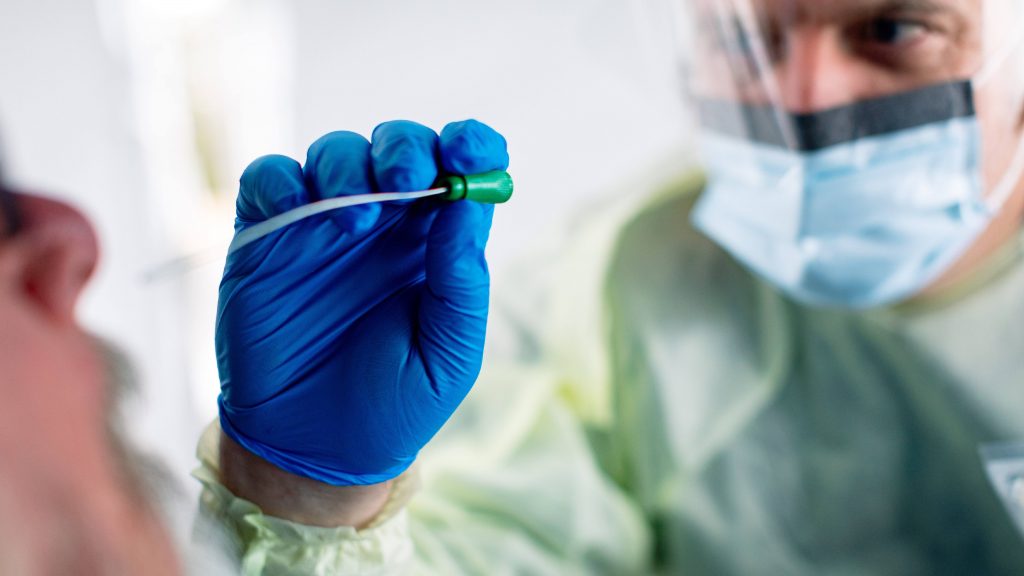
While some holiday gatherings were smaller than traditional celebrations, even small gatherings can increase the risk of COVID-19 transmission, especially given the prevalence of the virus in the U.S.
For instance at Mayo Clinic staff are being encourage to take extra precautions if they traveled during the holidays, which includes being tested for COVID-19, even if they are asymptomatic.
Below are reminders of how to reduce risk of infection:
- Wearing a mask properly.
- Maintaining social distancing.
- Washing your hands frequently.
- Cleaning and disinfecting surfaces.
If you go to public places, minimize your interactions with others as much as possible.
If you are sick or you've been exposed to COVID-19, stay home except to get medical care. Contact your health care provider for medical advice.
Safety measures remain important, even after negative test
While a negative test reduces the chances that you will expose family and friends to COVID-19, it does not completely eliminate the risk of transmitting COVID-19. It can take up to seven days to test positive for COVID-19 after an exposure. As an example, if you were tested three days after an exposure, your test may be negative, but you may still be at risk of developing COVID-19 and infecting others. So safety measures remain important.
__________________________
How patients should get tested at Mayo Clinic
- Arizona patients
Patients can contact their primary care provider or call the COVID-19 Help Line at 507-293-9525, and indicate they would like to receive a test for public health, work, school, day care, travel or another reason. Asymptomatic testing is not available if the patient has tested positive for COVID-19 in the past 90 days. - Florida patients
Patients can call the COVID-19 Help Line at 904-956-8775 and indicate they would like to receive a test for public health, work, school, day care, travel or another reason. Asymptomatic testing is not available if the patient has tested positive for COVID-19 in the past 90 days. - Rochester and Mayo Clinic Health System patients
Any Mayo Clinic patient with a home address in Iowa, Minnesota or Wisconsin can use the new Check Symptoms assessment tool in Patient Online Services to request a test. If patients are asymptomatic, they can still request a test by answering "yes" when asked if they have been advised to get COVID-19 testing or are requesting a test when using the Check Symptoms assessment tool. Alternatively, patients can call the COVID-19 Help Line at 507-293-9525 and indicate they would like to receive a test for public health, work, school, day care, travel or another reason.
This article is written by Mayo Clinic Staff. Find more health and medical information on mayoclinic.org.
__________________________
Information in this post was accurate at the time of its posting. Due to the fluid nature of the COVID-19 pandemic, scientific understanding, along with guidelines and recommendations, may have changed since the original publication date.
For more information and all your COVID-19 coverage, go to the Mayo Clinic News Network and mayoclinic.org.
Learn more about: Tracking and trending COVID-19








